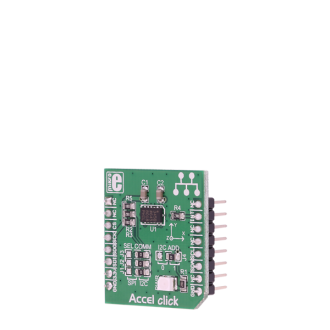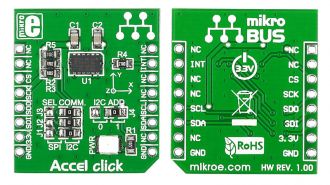
We strongly encourage users to use Package manager for sharing their code on Libstock website, because it boosts your efficiency and leaves the end user with no room for error. [more info]

Rating:
Author: MIKROE
Last Updated: 2018-11-07
Package Version: 1.0.0.1
mikroSDK Library: 1.0.0.0
Category: Motion
Downloaded: 12241 times
Followed by: 1 user
License: MIT license
This is a simple project which demonstrates the use of Accel click board. It features small ultralow power, 3-axis accelerometer ADXL345.
Do you want to subscribe in order to receive notifications regarding "Accel click" changes.
Do you want to unsubscribe in order to stop receiving notifications regarding "Accel click" changes.
Do you want to report abuse regarding "Accel click".

